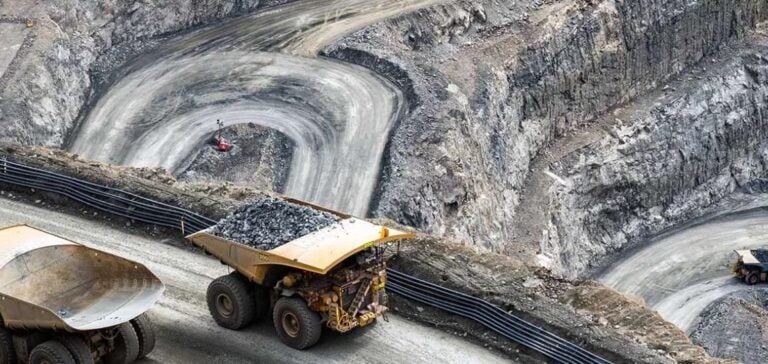With the rise of renewable energies and the increasing production of electric vehicles, global demand for critical minerals such as copper, cobalt, nickel, lithium and rare earths is intensifying.
These raw materials are essential for the manufacture of batteries and electronic components.
According to the International Energy Agency (IEA), demand for these minerals could quadruple by 2040 to meet targets for limiting global warming to 1.5°C.
This strong demand is leading to fears of shortages and market tensions, exacerbated by often opaque mining practices.
To oversee this growth, UN Secretary-General Antonio Guterres has set up a committee of experts to develop guidelines to ensure more responsible exploitation of these resources.
The group, made up of representatives from government ministries, non-governmental organizations and mining sector specialists, recently presented a set of seven guiding principles designed to frame the production chain for critical minerals.
Towards a framework of transparency and accountability
UN experts advocate the adoption of a global system of traceability, transparency and accountability covering the entire supply chain of critical minerals.
This system would be based on an independent assessment of the environmental and social performance of mining companies, including criteria such as workers’ rights, respect for local communities, greenhouse gas emissions and environmental impacts.
This approach aims to harmonize existing practices and create a common framework for all players, from producer countries to processing companies.
The proposal for such a traceability system comes at a time when the practices of certain mining companies, particularly in developing countries, are often criticized for their lack of transparency and for human rights violations.
Indeed, the benefits of natural resource exploitation are not always equitably shared, leaving local communities without adequate compensation despite the negative impacts on their environment and health.
Benefit sharing and rehabilitation of mining sites
To complement this transparency framework, the UN committee recommends the establishment of a global fund financed by governments and companies.
The aim of this fund would be to support the rehabilitation of mining sites after closure, and to compensate the local populations affected.
This is a measure to remedy the legacy of many past mining projects, where abandoned and unrehabilitated sites continue to cause considerable environmental and health damage.
The fund would also encourage more responsible mining practices and promote a better distribution of profits.
Developing countries, often the main suppliers of these critical minerals, would thus be able to obtain a fairer return on the exploitation of their natural resources.
The report points out that without such an approach, inequalities between producer and consumer countries will continue to grow, to the detriment of local populations.
The challenges of global implementation
While the principles established by the UN committee of experts provide an ambitious framework, their implementation remains complex.
The creation of a global traceability system would require the commitment and cooperation of multiple players, from governments to private companies.
Moreover, the mining sector is marked by a diversity of national practices and regulations, making standardization of standards and processes difficult to achieve.
The need for independent assessment adds a further layer of complexity, particularly in terms of financing and governance.
The experts also highlight the importance of reducing dependence on critical minerals through more responsible consumption and recycling of materials.
This includes technological innovation, which could reduce the quantity of minerals needed in renewable technologies.
However, these advances are not yet widespread, and their large-scale adoption remains uncertain.
A framework for more responsible operations
While some industry players are considering exploring new mining frontiers, such as the seabed, the UN committee’s report focuses solely on landmines, where social and environmental impacts are already well documented.
This focus could, at first, help to answer critics while offering a more tangible framework for implementation.
However, there are already calls to extend this framework to the new forms of exploitation on the horizon.
The question of traceability of critical minerals is now being raised on the international stage as a key issue in the energy transition.
The UN committee’s proposals could serve as a basis for future negotiations aimed at establishing international standards.
However, their success will depend on the commitment of stakeholders and the collective will to make the mining sector more transparent, accountable and equitable.






















